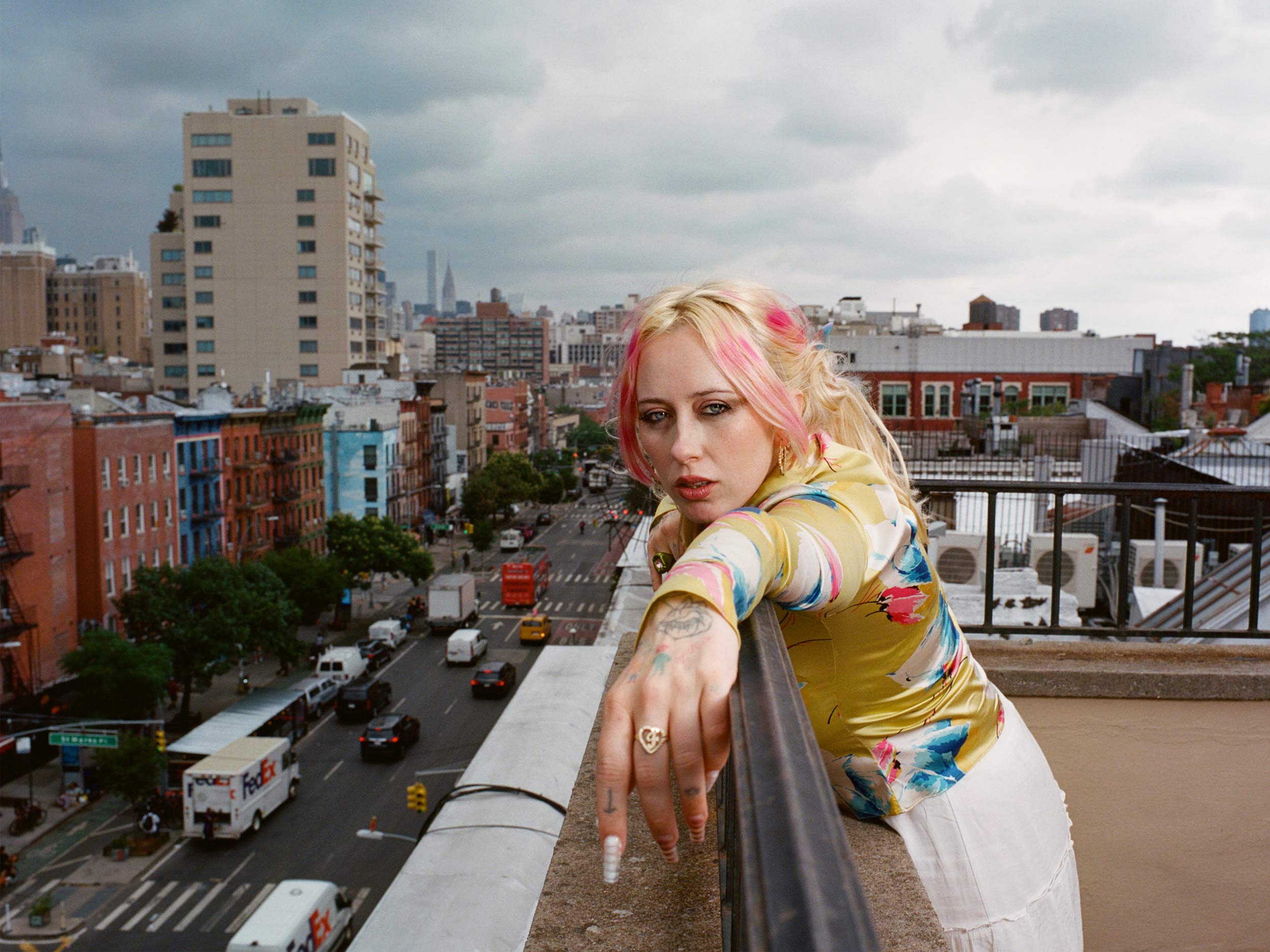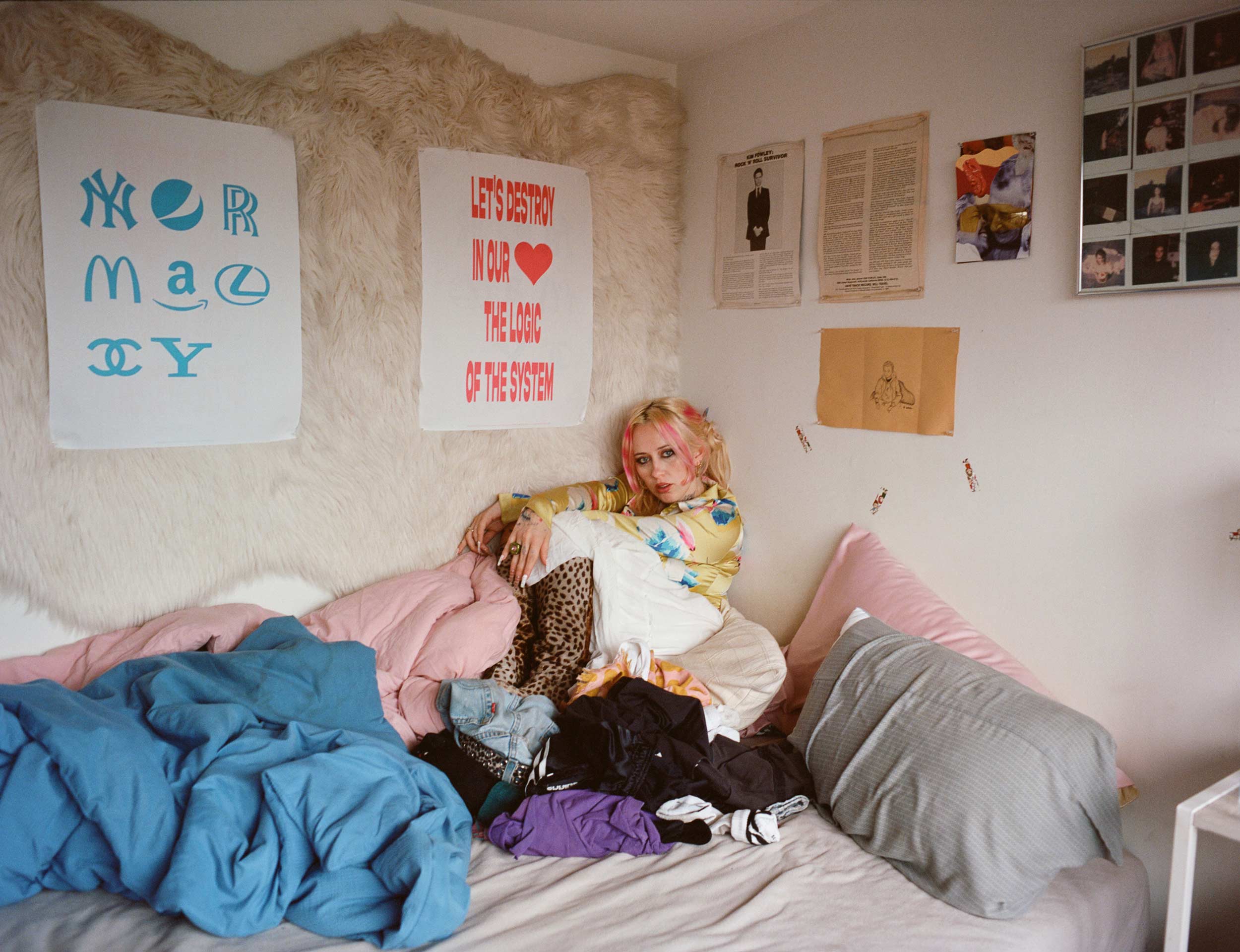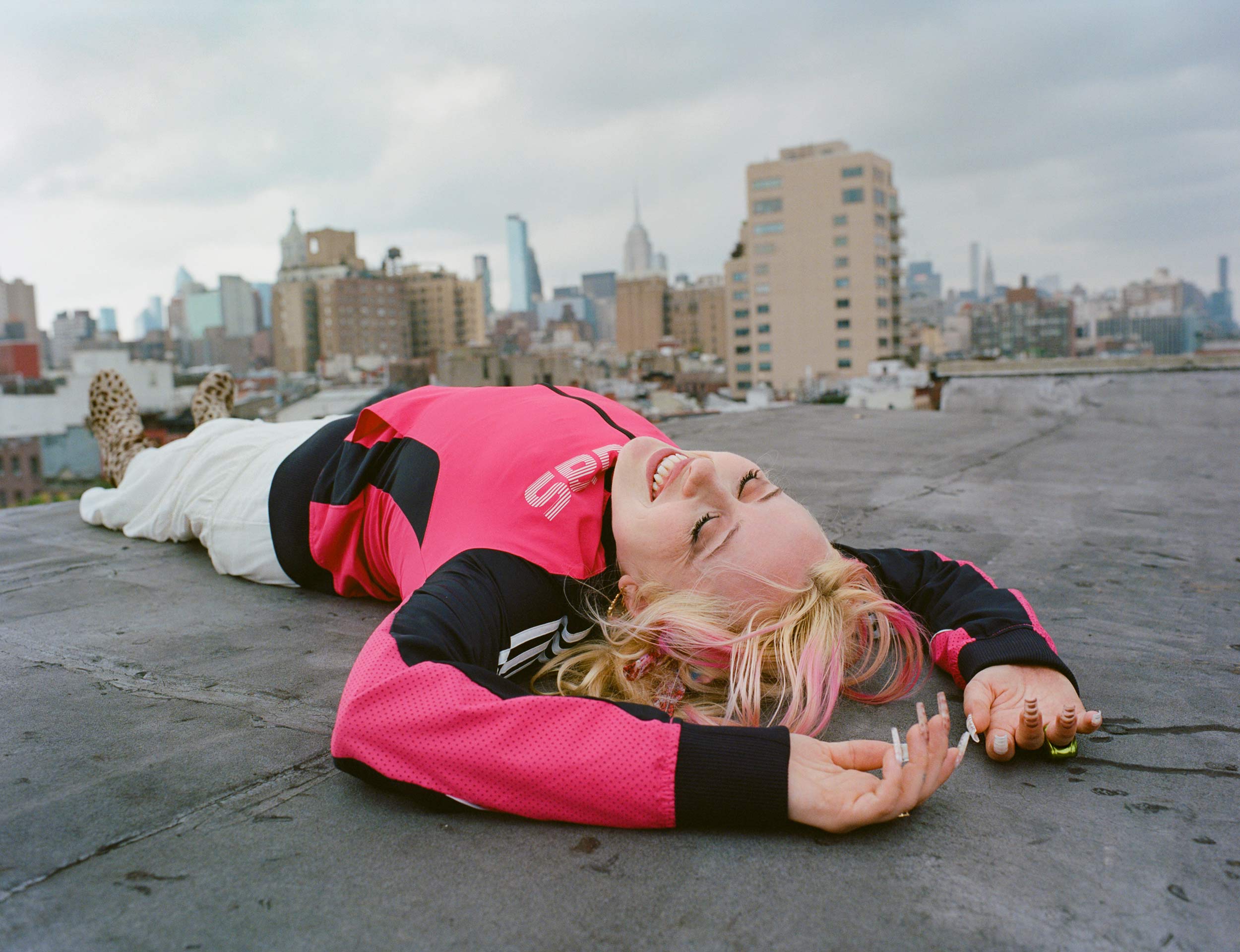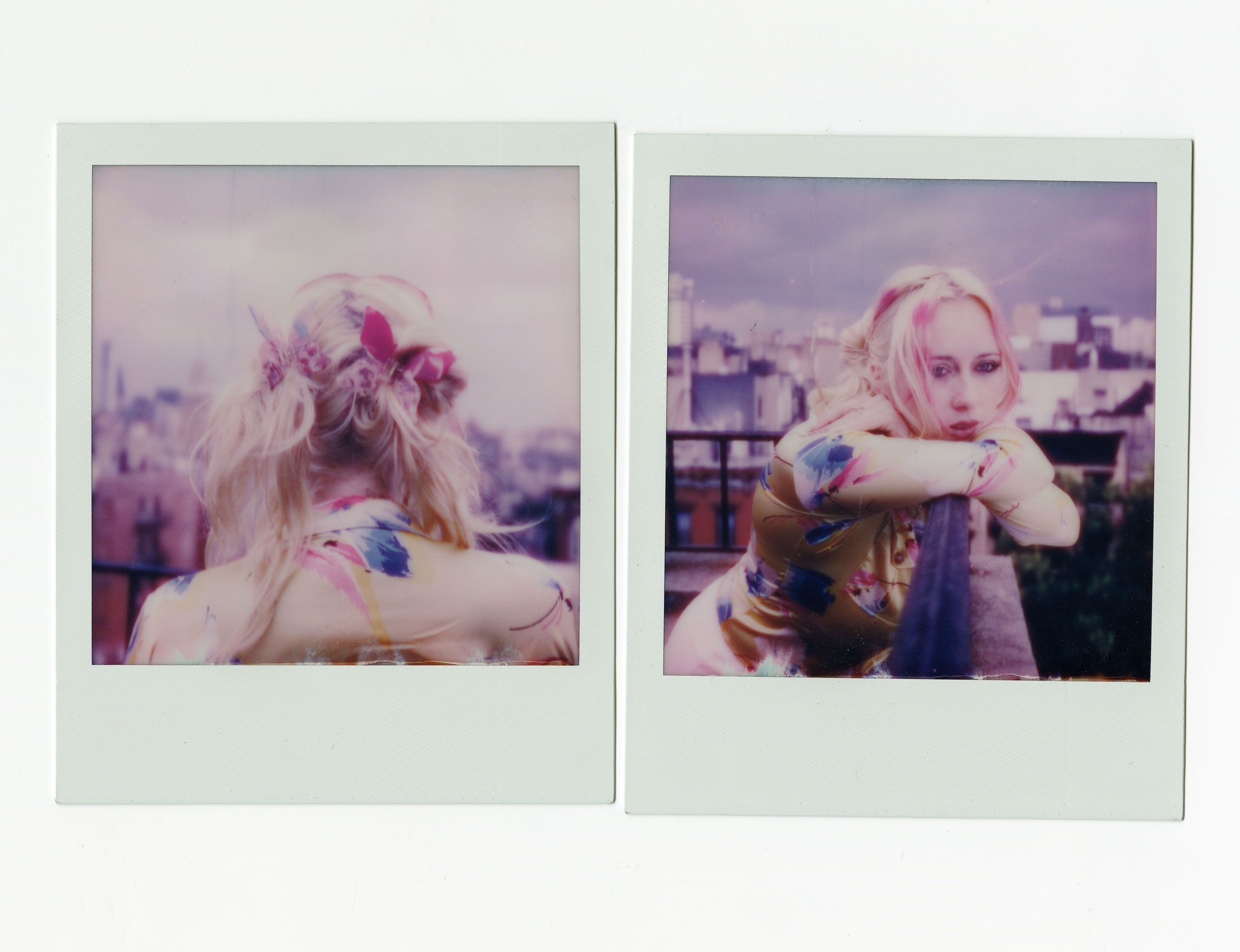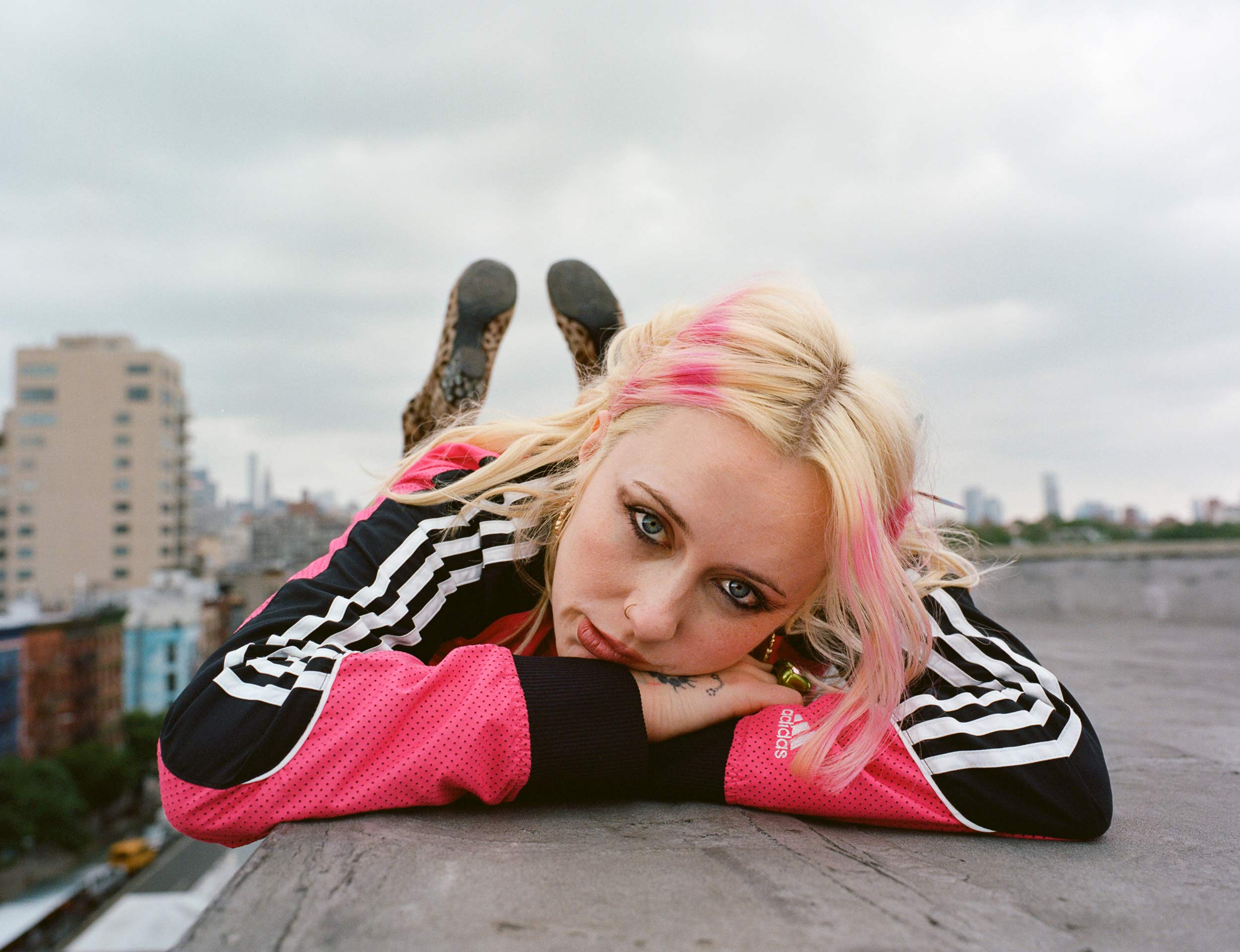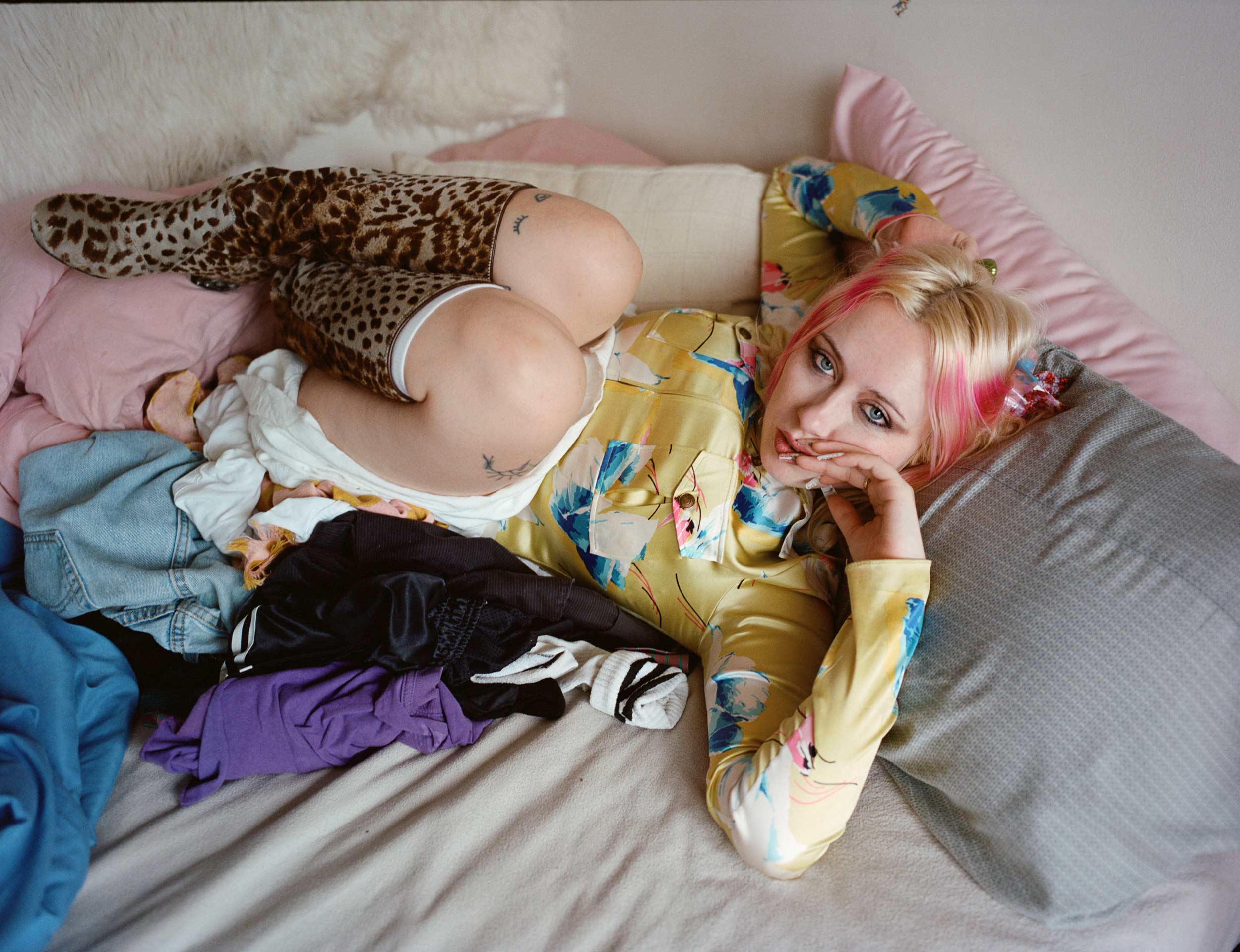The singer-songwriter tells Document all about making “emotional, philosophical” indie pop music on her debut solo EP
Harmony Tividad dances with a crowd of bikini-clad girls in fursuit heads. The scene, taken from the music video for “Shoplifting from Nike,” the second single off her debut solo EP Dystopia Girl, looks like a Parade advertisement on acid. The hot girl furries wave their hands in the air as Harmony, adorned in hot pink cheetah print leggings and a highlighter yellow bralette, twirls with glee center frame.
In the lobby of PUBLIC Hotel, sat beside a neon-velvet pool table, Tividad is easy to spot. Streaks of pink run through her blond hair, and her eyelids are dusted with pale green shadow. Along her collarbone, a glittery teal tattoo reads PLAY, the lettering thick and streaky, as if it were done by a friend with a Sharpie. Her personal style matches the maximalism of the music video: uncompromising and carefree at once.
Tividad calls this aesthetic “camp femininity.” Growing up in Los Angeles, she chafed against the city’s demand for air-brushed, movie-star beauty. “Growing up in LA, femininity was a sore spot [for me],” she explains. “I was really academic, and felt like I had to fight to make my way in the world. But at the same time, I wanted to be beautiful and soft.”
In making Dystopia Girl, released under her mononymous first name, she wanted to flip an ideal notion of womanhood, to “kind of play with it, satirize it—make it camp and over the top.” It’s a strategy she adopted from the work of David Lynch, a filmmaker whose work similarly absorbs the caustic culture of LA to reshape it into loopy, surrealist art.
Tividad’s penchant for high-octane aesthetics is also influenced by her early years on the internet. As a teenager, she discovered a creative scene on Tumblr that offered her solace from the alienation of her everyday life. “I love characters and costumes,” she exclaims. “The internet’s a fun place to become anything, and then become something else.” In her music videos, she is a Best Buy thief, a Dance Dance Revolution hologram, and a preacher proselytizing to a crowd of vaping, gum-smacking girls. Like light bouncing off of a disco ball, her characters are reflections of herself.
Although she delights in taking on different personas, Tividad insists that Dystopia Girl comes from a place of deep vulnerability. “It’s funny, because I think the music has this cerebral and ethereal quality,” she muses. “But it’s actually so based in reality, so it’s not really cerebral or ethereal at all when you parse it out.”
“But also, I view reality as kind of magical,” she adds. “So that’s probably why there’s a magic feeling to it.” She takes the mundanities of modern life—debt, laxatives, and Hulu subscriptions, to name a few—and makes them sacred through her song.
This belief in the intrinsic beauty of the human experience is, in part, why Tividad chose to make Dystopia Girl a pop record. Within the genre, she is inspired by the warp-speed tempo of Cascada, the visual magnificence of Madonna, and the bubbly production of Charli XCX. “I’ve always wanted to make emotional, philosophical pop music that’s really evocative,” she explains. “I’m obsessed with things that everyone can see beauty in. An interesting part of pop culture is that it’s catering to as many people as possible, and creating something that everyone can see themselves in.”
Tividad’s pop-star moment comes after nine years of performing as half of the indie rock duo Girlpool. Moody guitar riffs and driving drum beats have given way to sugary, spiraling dance music. In many ways, Dystopia Girl is a rupture in Tividad’s musical trajectory, a fresh start fizzing with creative potential. “Every time I make big decisions, I’m petrified—it’s very vulnerable,” she admits. “But I think it’s so important to push yourself and grow and become different things. Change is the most beautiful thing.”
Despite the seismic shift in her sound, Tividad’s relationship with songwriting has persisted. “Being moved by music has always been transcendent for me,” she says. “[I feel] like I can exit my body through lyrics.”
For all of Dystopia Girl’s sonic splendor, Tividad opts to compare her songwriting to the minimal elegance of mathematics. “I was very good at math as a child,” she explains. “I’m thrilled [by] formulas: It’s just a fun puzzle to me. I like games, and writing feels like the most fulfilling, validating game. You’re playing with your own feelings and heart.”


